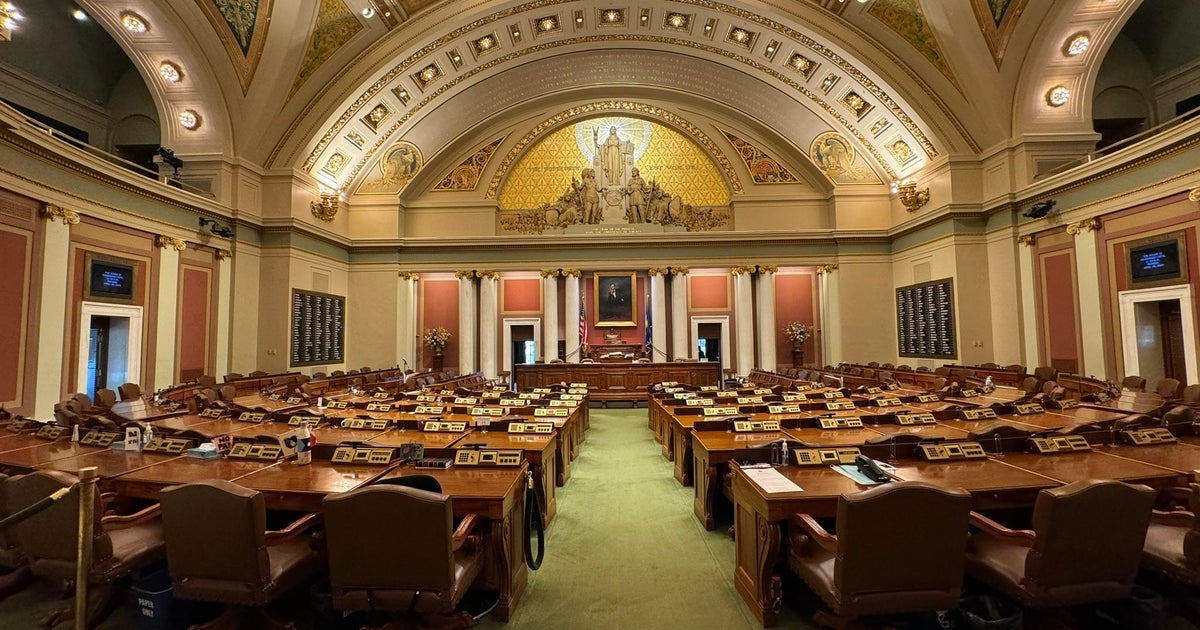Full repeal of social security tax in Minnesota a sticking point in legislature this year
ST. PAUL, Minn. -- Last spring, Republican and DFL leaders announced they struck a deal with Gov. Tim Walz that included exempting all social security benefits from state taxes.
That compromise fell apart before session ended, never becoming law. But on Thursday, lawmakers in the Senate taxes committee pushed restart on discussing that proposal, which is already a sticking point among Democrats who have power in both chambers of the legislature.
"This bill is about money. But it's also about what, and more importantly whom, we value," said Sen. Aric Putnam, DFL-St. Cloud, the bill's author, during committee.
Under current law, social security recipients can subtract some of those benefits from their taxable income. The formula to determine how much depends on filing status calculation that accounts for half of those benefits and adjusted gross income, known as "provisional income."
About half of filers who get the benefits don't pay taxes on social security already, according to the Minnesota Department of Revenue. But passing the bill to repeal all taxes on the payments would impact 473,000 people with an average tax savings of $1,276.
Putnam and a few other DFL legislators join Republicans, who also want to full exemption of social security benefits. But other Democrats, including DFL legislative leaders and now Gov. Tim Walz don't share the same position, raising concerns that the plan benefits the wealthiest in the state who don't need the tax break while slashing the state budget.
"It has exploding tails, meaning it's very expensive in the future," said House Speaker Melissa Hortman, DFL-Brooklyn Park, during a news conference last week. "If we're going to do something like that, we need to know what happens in future years to our investments and things like public schools. So we'll very carefully consider that proposal. It is in the mix."
If passed, it would be a $604 million hit to state revenues in 2024 that increases in years after, a Department of Revenue estimate shows.
Still others remain firm that full exemption is a top priority, setting up an intraparty battle that is likely to take many months of session to find common ground. Putnam's bill also creates a new subtraction for some Minnesotans who have public pensions.
Sen. Grant Hauschild, DFL-Hermantown, and three other newly-elected DFL senators who helped deliver the one-seat majority in the chamber say the bill is a top budget priority. Issue repeatedly came up in discussions with voters on the campaign trail.
"I heard ad nauseam from seniors and those nearing retirement how critical this issue was," Hauschild said during the committee hearing. "With correspondence from my constituents since the election, I would say 90% -- that's an estimation but about 90% -- have told me how important this issue is."
Social security was a key win for Republicans in a tax agreement between chambers last spring that ultimately didn't pass as negotiations on other spending broke down. Republicans also want to cut tax rates for ongoing savings, though that's unlikely to happen in the DFL-led legislature.
"As we look at not only social security but our income tax rates, it's the combination of a variety of things that leads people to say, 'I will not live in Minnesota for six months and a day,'" said Sen. Bill Werner, R-Luverne.
There will be a public hearing on the proposal next week.




